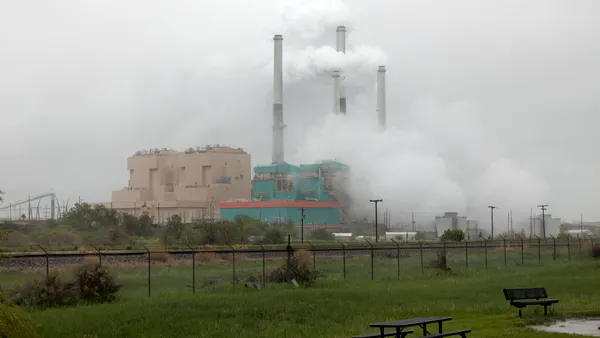Dive Brief:
- New emails obtained by the Charleston Post & Courier show a deteriorating relationship between the owners of the V.C. Summer nuclear plant in South Carolina and lead contractor Westinghouse Electric in the months leading up to the abandonment of an expansion plan for the facility.
- The emails build on past messages that indicate officials at Santee Cooper and South Carolina Electric & Gas Co. were aware of financial and construction difficulties at the plant as early as last summer, but kept the knowledge out of the public eye and continued to push for its completion.
- The new emails demonstrate that plant owners communicated directly with Toshiba, parent company of Westinghouse, about problems at the plant. In one, the CEO of SCANA wrote to Toshiba's chief executive, saying "we have no doubt that we have been the victim of financial malfeasance by [Westinghouse] and Toshiba."
Dive Insight:
The Post & Courier's diligent coverage of the V.C. Summer fallout continues to raise questions about what the plant owners knew of project problems and when they knew it.
As early as last summer, both SCANA CEO Kevin Marsh and Santee Cooper CEO Lonnie Carter made it clear they suspected Westinghouse and Toshiba were unable to pull off the project — and told the companies that in no uncertain terms.
"Deceit and non-transparency" — words not often tossed around by electric utilities — was how Carter put it in one email. In an October 2016 note to Marsh, he said Santee Cooper had hired bankruptcy lawyers in June to "help us think through Toshiba/Westinghouse insolvency scenarios.”
The upshot is that the South Carolina utilities appear to have suspected to project was in trouble, but didn't inform regulators or other officials. The utilities abandoned the project in July after spending more than $14 billion to construct two new reactors.
The new emails come in the wake of an audit of the project recently released at the demand of South Carolina Gov. Henry McMaster (R). Prepared by contractor Bechtel in February 2016, the report outlines numerous problems at the plant, including flawed engineering documents, low morale at the work site, frequent construction changes, high turnover and generally slow progress.
The report was completed in early 2016 — months before SCE&G informed regulators that its share of the development costs had risen more than $800 million, and about a year and a half before the utilities agreed to scrap the project.
The emails also show SCE&G and Santee Cooper were already considering in June of last year that Westinghouse might fall into bankruptcy. The company went bankrupt in March of this year.
Originally proposed in 2007, the two-reactor expansion of the Summer plant was supposed to be completed by 2017 and 2018, respectively. Issues with Westinghouse's reactor design led to delays, cost overruns and ultimately the company's failure.
When the project was scrapped, officials said costs to complete could reach over $25 billion.














